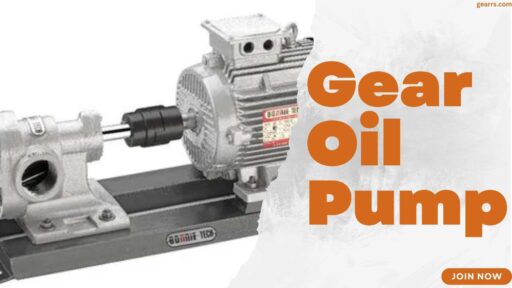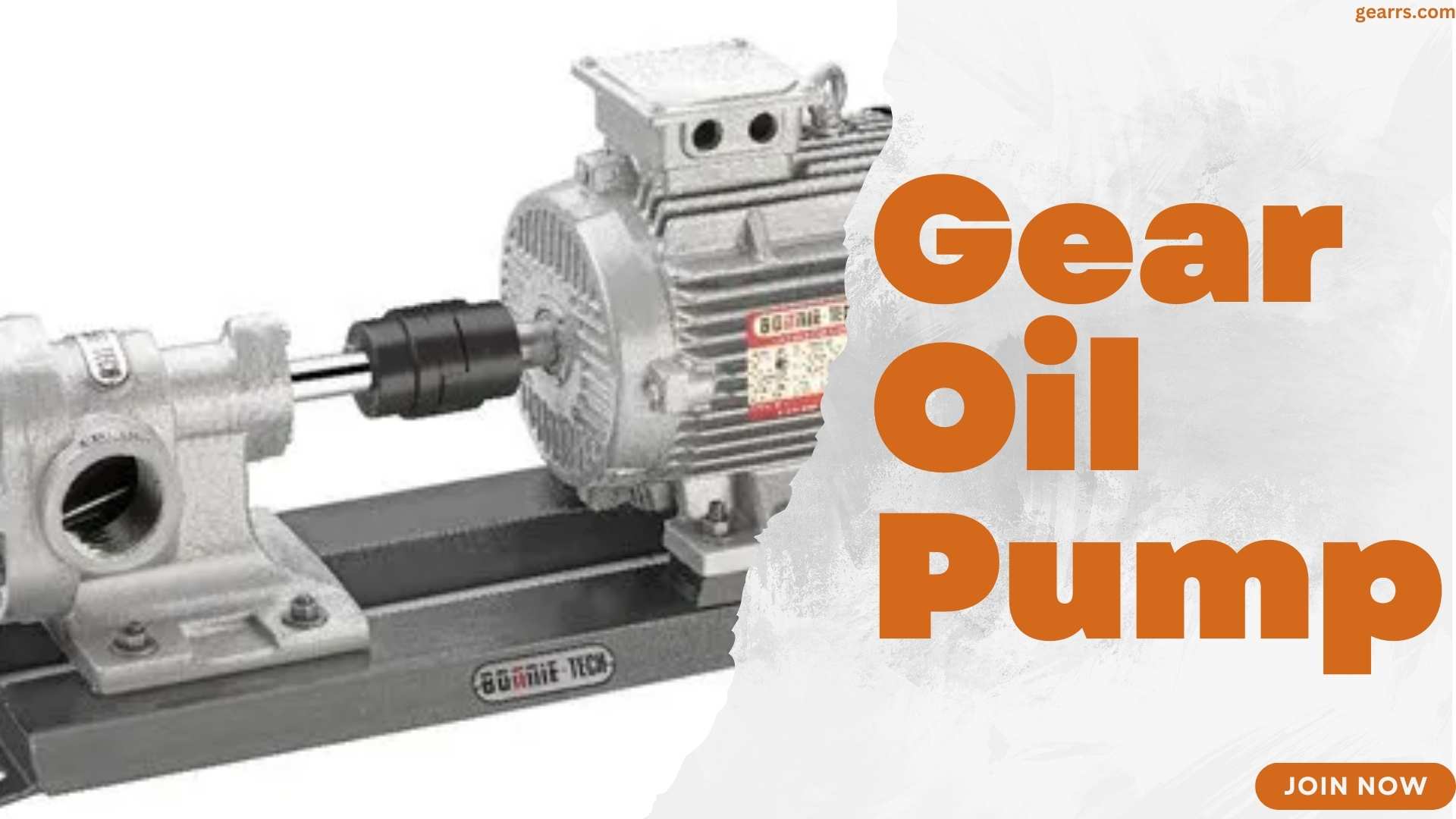Throughout my career as a mechanical engineer, I have had the chance to work with different kinds of pumps. One of these pumps of utmost importance in various industries is the gear oil pump. They are made to enable the flow of oils or fluids in machines. This helps the machines run well and efficiently. This article is comprehensive. I will take you through all the details about gear oil pumps. I’ll cover their significance. I’ll also cover the factors to consider when choosing the best one.
Importance of Choosing the Right Gear Oil Pump
Choosing a gear oil pump correctly will help keep your machinery in optimal performance and last longer. A good gear oil pump ensures oil circulates and spreads right. This is key for lubrication and cooling. Without the right gear oil pump, your machinery might have too much friction. This would cause it to overheat and wear out quickly, leading to costly repairs and unproductive downtime.
Types of Gear Oil Pumps
Different types are available in the market when it comes to choosing a gear oil pump, each with its own advantages and limitations. External gear pumps, internal gear pumps, and gearmotor pumps are among the most popular ones.
- External Gear Pumps: They consist of two gears, an idler gear and a driven retained within a casing. As gears turn, equal spaces between their teeth cause suction and discharge. This traps oil in a chamber between the teeth and case surfaces. It creates a pressure difference that causes suction and discharge, like tides in a tidal river. Use external gear due to simplicity, smallness as well ability deal with high anodes ranked by industry sources.
- Internal Gear Pumps: The outer has external teeth, and the inner has internal ones. The fluid gets trapped in the gear teeth as the rotor turns. Then, it is carried from the suction side to the discharge side. Internal gear pumps operate smoothly and noiselessly in addition to being good for high viscous liquids.
- Gyrator Pumps: These have an outer rotor plus an inner rotor with lobes and corresponding spaces between them. The outer rotor rotates when its shaft is driven, causing rotation of the inner one, too. Consequently, fluid is pumped from the inlet side to outlet side through meshing and the unmasking of lobes. Their main application area is in those cases where high flow rates need to be maintained even if very small pressure differences are imposed on them.
Factors to Consider When Choosing a Gear Oil Pump
In order for you to choose the right gear oil pump that will work well with your machinery and give optimal performance, here are some factors you should keep in mind:
- Operating Conditions: These include flow rate, pressure drop temperature of oil etcetera that the machine operates at. Ensure that the choice regarding lubrication oils gears is selected properly to manage these features without any hitches.
- Material Compatibility: Observe whether or not materials used for making the pump can match with specific kind of oil or fluid that will be fed there into because certain oils/fluids may lead degradation or corrosion due particular ones they demand.
- Pump Size and Capacity: Ensure the right pump size and capacity depending on the amount of oil or fluid required by your machine. If a pump is too big or too small, it will lead to inefficiency and wear quickly.
- Mounting and Installation: Consider the area available for mounting the pump as well as ease of installation. Some pumps may require additional accessories or modifications for proper installation.
- Noise and Vibration: Evaluate noise levels from vibration that are produced by gear oil pumps. Excessive noise and vibrations can be signs of inferiority or a misalignment dysfunction which interferes with optimal performance of your system.
Understanding Gear Oil Pump Specifications
When deciding to buy a gear oil pump, you should also understand what the different specifications provided by manufacturers mean. Here are some common specifications:
- Flow Rate: The flow rate indicates how much liquid (oil) the pump can move in one unit of time. It is often expressed as gallons per minute (GPM) or liters per minute (LPM).
- Pressure Rating: Pressure rating means the maximum pressure that the pump can handle without adverse effects occurring on it. It is usually measured in pounds per square inch (PSI) or bar.
- Viscosity Range: The viscosity range refers to the kinds of oils that will properly work with this specific pumping mechanism. It is important to choose a pump that can accept your machinery’s viscosity requirements for its oils/fluids.
- Material Construction: Materials utilized in constructing these pumps determine their durability as well as resistance against corrosiveness e.g., cast iron, stainless steel among others.
- Efficiency: Gear oil pumps indicate their efficiency by reflecting on how power from the driving source reaches fluid being pumped out through them; therefore, efficient ones consume less power while producing little energy costs during operations.
Common Problems with Gear Oil Pumps
With time, like any other mechanical part, gear oil pumps can develop problems. These commonly occurring issues will help you troubleshoot and fix them before more damage occurs to your system. Here are some common problems associated with gear oil pumps:
- Cavitation: This is the formation of vapor bubbles that results from reducing fluid pressure below its vapor pressure, which causes cavitation of fluid in a pump system. Sometimes, insufficient inlet pressure or the extremely high speed of the pump causes this.
- Leakage: Oil leakage can be due to worn-out seals, gaskets or damaged pump components. A leaking gear oil pump leads to poor lubrication and reduces system performance.
- Noise and Vibration: Excessive noise and vibration often signal misalignment, bearing wear out, or faulty gear teeth, respectively; therefore, prompt checkup is needed for these cases.
- Overheating: The reason why gear oil pumps overheat could be excessive friction, lack of sufficient cooling or use of wrong oil viscosity grades among others. Prolonged overheating eventually leads to quick wearing off hence reduced pumping action.
- Contamination: Inflow of dust/dirt particles, debris or water can cause contamination in lubricating oils/fluids thereby making them dangerous liquids; leading to blocked pumps thus ineffective lubrication resulting in increased friction and rate at which gears wear out.
Maintenance and Troubleshooting Tips for Gear Oil Pumps
To make sure that your gear oil pump lasts long and functions optimally, you need to maintain it regularly through trouble shooting. Here is a troubles outing can keep your gear oil pump in its best condition:
- Regular Inspections: Frequently visually inspect the pump for any sign of leakage, unusual noise or vibration. Solve any problems immediately so as to avoid further damage.
- Lubrication: Observe the manufacturer’s instructions on how to grease the parts of the pump. Failure to provide enough lubrication could cause excessive friction and wear out.
- Filter Maintenance: Carry out regular cleaning or replacement of oil filters so as not to contaminate the Nate filter with impurities. Contaminated oil may negatively impact the pump’s performance, resulting in severe damage.
- Alignment Balance: Ensure there is proper alignment and balance among all components of the pump in order to avoid too much noise, vibrations, and wearing off Misalignment can also lead to early failures of gears plus bearings.
- Temperature Monitoring: Always observe the operating temperature of the pump regularly, and overheating may indicate an inadequate cooling system or wrong viscosity of lubricant. In case there are any irregularities observed regarding temperature, precautions should be taken promptly.
Advantages of Efficient Gear Oil Injection
A properly functioning gear oil injection means good maintenance in motion throughout the machinery being maintained.
Improved Lubrication
A well-functioning gear oil injection makes certain that all parts receive sufficed oils at specific time sufficient reducing friction and wear.
Enhanced Machine Performance
Mechanical systems with efficient gear pumps often enjoy superior attributes as far as operation smoothness is concerned, coupled with minimized sound emission levels.
Increased Component Lifespan
In an overall regime where gear pumps support lubrication, chances for component wear-out are reduced significantly, thereby extending equipment service life and eliminating premature failure risks.
Leading Gear Oil Pump Brands And Models
Whenever it comes to buying a gear oil pump, it is very important that you go for a reputable brand known for manufacturing high-quality and reliable pumps. Here are some of the leading gear oil pump brands and models you should consider:
Brand X – Model A: The Brand X Model A gear oil pump is used in many industrial applications because it’s durable and efficient.
Brand Y – Model B: This is highly regarded as a quiet gear oil pump that works well with high viscosity fluids.
Brand Z – Model C: The Brand Z Model C gear oil pump has numerous options and configurations available to suit small to large scale operations.
Frequently Asked Questions (FAQs)
How frequently should I change my machinery’s gear oil?
The frequency of changing your equipment’s lubrication depends on various parameters including operating conditions, type of machine and recommendations from the m, manufacturer. It is generally recommended replacing these oils every 3000 to replacers or as prescribed by the machine builder.
Can any kind of gear oil be used with a gear oil pump?
No, the machine manufacturer should guide the correct selection of gear oil to ensure the right type and appropriate viscosity. Putting in place different types of gear oil can cause poor lubrication, wear, and tear that is above normal, as well as reduce pump performance.
How long does a gear oil pump usually last?
The lifetime of a gear oil pump relies on numerous things like the quality of the pump itself, operational conditions and maintenance practices. A properly maintained one can last for 10-20 years or even more.
Conclusion of Gear Oil Pump
Choosing the appropriate gear oil pumps for your machines is very important. Looking at factors such as operating environment, material compatibility, pump size, and specifications will help you find an ideal product to suit your needs. By following this simple procedure regularly, you will have your gear oil pump in order and will be able to minimize downtime whilst ensuring smooth working and optimal results; also make sure you buy from truss two they sellers so that you can get high-quality items from reputable brands.






